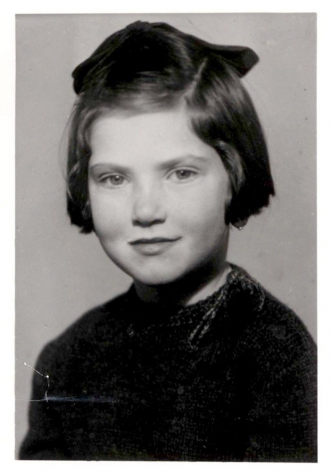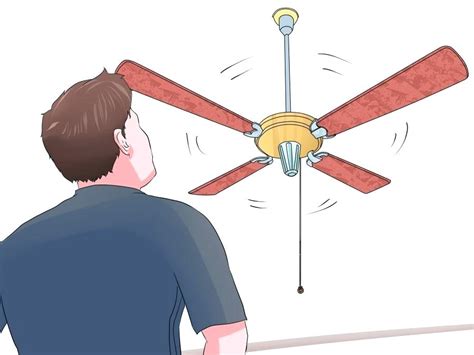MYSTERY OF THE TALKING FAN for Class 7 ENGLISH
THEME
The poem beautifully captures the movement of the much familiar and mundane objects around us, which in today’s time are a very essential part of our existence.
The poet says that there is a mystery in the fan that talks. Have you ever heard a fan talk? I don’t think anyone has ever heard a fan talk. But the poet, in the poem says that the fan in the room talks.
THEME
The poem beautifully captures the movement of the much familiar and mundane objects around us, which in today’s time are a very essential part of our existence.
The poet says that there is a mystery in the fan that talks. Have you ever heard a fan talk? I don’t think anyone has ever heard a fan talk. But the poet, in the poem, says that the fan in the room talks.
EXPLANATION
Kavita hume humare aas-paas ki jaani-pehchani aur mundane vastuon ke baare mein khoobsurati se batati hai, jo aaj ke samay mein humare astitv ka ek bahut hi necessary hissa ban chuke hain.
Kaviyitri kehti hai ki baat karne vale pankhe mein ek rahasy hai. Kya aapne kabhi kisi pankhe ko baat karte hue suna hai? Mujhe nahi lagta ki kisi ne kabhi kisi pankhe ko baat karte hue suna hai. Lekin kaviyitri, kavita mein kehti hai ki unke kamre mein jo pankha hai vah baat karta hai.
EXPLANATION
कविता हमें हमारे आस-पास की जानी-पहचानी और सांसारिक वस्तुओं के बारे में खूबसूरती से बताती है, जो आज के समय में हमारे अस्तित्व का एक बहुत ही आवश्यक हिस्सा बन चुकें हैं।
कवयित्री कहती है कि बात करने वाले पँखे में एक रहस्य है। क्या आपने कभी किसी पँखे को बात करते हुए सुना है? मुझे नहीं लगता कि किसी ने कभी किसी पँखे को बात करते हुए सुना है। लेकिन कवयित्री, कविता में कहती है कि उनके कमरे में जो पँखा है वह बात करता है।
ABOUT THE AUTHOR

Maude Rubin was a brilliant poet. She was a poet with over 100 published poems and 42 state and national awards. Maude Rubin was born on June 30, 1891. She died in October 1973 at 82 years of age. Rubin's most famous poem is entitled 'Mystery of the Talking Fan', the collection 'Lyrics of Three Women,' with Katie Lyle.
ABOUT THE AUTHOR

Maude Rubin was a brilliant poet. She was a poet with over 100 published poems and 42 state and national awards. Maude Rubin was born on June 30, 1891. She died in October 1973 at 82 years of age. Rubin's most famous poem is entitled 'Mystery of the Talking Fan', the collection 'Lyrics of Three Women,' with Katie Lyle.
EXPLANATION
Maude Rubin ek shandaar Kaviyitri thi. Unhonne 100 se adhik prakashit kavitaon aur 42 raajy aur raashtriy puraskaar apne naam kiye the. Maude Rubin ka janm 30 june, 1891 ko hua tha. October 1973 mein 82 varsh ki aayu mein unka nidhan ho gaya tha. Rubin ki sabse prasiddh kavita 'Mystery of the Talking Fan' aur sangrah 'Lyrics of Three Women,' Katie Lyle ke saath hai.
EXPLANATION
मौड रुबिन एक शानदार कवयित्री थी। उन्होंने 100 से अधिक प्रकाशित कविताओं और 42 राज्य और राष्ट्रीय पुरस्कार अपने नाम किए थे। मौड रुबिन का जन्म 30 जून, 1891 को हुआ था। अक्टूबर 1973 में 82 वर्ष की आयु में उनका निधन हो गया था। रुबिन की सबसे प्रसिद्ध कविता "मिस्ट्री ऑफ़ द टॉकिंग फैन" और संग्रह "लिरिक्स ऑफ़ थ्री वुमन", केटी लाइल के साथ है।
PARAGRAPH 1

Once there was a talking fan —
Electrical his chatter.
I couldn’t quite hear what he said
And I hope it doesn’t matter
PARAGRAPH 1

Once there was a talking fan —
Electrical his chatter.
I couldn’t quite hear what he said
And I hope it doesn’t matter
IMPORTANT WORDS
Electrical: related to electricity, विद्युत से संबंधित
Chatter: to speak or make noise rapidly and continuously, तेज़ गति से या देर तक किसी मामूली विषय पर बात करना; लगातार निरर्थक चर्चा करना; बकबक करना
IMPORTANT WORDS
Electrical: related to electricity, विद्युत से संबंधित
Chatter: to speak or make noise rapidly and continuously, तेज़ गति से या देर तक किसी मामूली विषय पर बात करना; लगातार निरर्थक चर्चा करना; बकबक करना
EXPLANATION
Kaviyitri kavita ki shuruaat yah kehte hue karti hain ki ek bijli (Electricity) se chalne vala pankha (Fan) hai, jo bahut shor karta hai. Us shor par kaviyitri kehti hai ki pankha bol raha hai; vah kehti hai ki vah unhe kuch batane ki koshish kar raha hai. Kaviyitri us pankhe ke shor ko bijli ki gadgadahat kehti hai. Aage kaviyitri kehti hai ki unhe samajh nahi aa raha tha ki usme se itna shor kyun aa raha tha ya pankha apni bakbak se unhe kya kehna chah raha tha.
Isey aasaan shabdon mein kahe toh vah kehti hain ki unhe samajh nahi aa raha tha ki aakhir pankhe mein kya kharabi thi. Aur yah kaviyitri ke liye ek rahasy tha, kyunki vah bolne vale pankhe ki samasya (Problem) ko samajhne mein asafal rahi.
EXPLANATION
कवयित्री कविता की शुरुआत यह कहते हुए करती हैं कि एक बिजली से चलने वाला पँखा है, जो बहुत शोर करता है। उस शोर पर कवयित्री कहती है कि पँखा बोल रहा है; वह कहती है कि वह उन्हें कुछ बताने की कोशिश कर रहा है। कवयित्री उस पँखे के शोर को बिजली की गड़गड़ाहट कहती है। आगे कवयित्री कहती है कि उन्हें समझ नहीं आ रहा था कि उसमें से इतना शोर क्यों आ रहा था या पँखा अपनी बकबक से उन्हें क्या कहना चाह रहा था।
इसे आसान शब्दों में कहें तो वह कहती हैं कि उन्हें समझ नहीं आ रहा था कि आखिर पँखे में क्या खराबी थी। और यह कवयित्री के लिए एक रहस्य था, क्योंकि वह बोलने वाले पँखे की समस्या को समझने में असफल रही।
PARAGRAPH 2

Because one day somebody oiled
His little whirling motor
And all the mystery was spoiled —
He ran as still as water.
PARAGRAPH 2

Because one day somebody oiled
His little whirling motor
And all the mystery was spoiled —
He ran as still as water.
IMPORTANT WORDS
Whirling: rotating, गोल-गोल घूमना
Oil: (V) to apply oil on something rusty, चिकनाई के लिए तेल डालना
Mystery: secret/something unexplainable or incomprehensible, जो न समझ में आए न समझाया जा सके, समझने या समझाने से परे, रहस्य, भेद की बात
Spoiled: ended, finished, discovered, किसी अच्छी चीज़ को ख़राब, बेकार आदि कर देना; किसी वस्तु को बिगाड़ देना
Still: quiet or motionless, हलचल-रहित या शाँत
IMPORTANT WORDS
Whirling: rotating, गोल-गोल घूमना
Oil: (V) to apply oil on something rusty, चिकनाई के लिए तेल डालना
Mystery: secret/something unexplainable or incomprehensible, जो न समझ में आए न समझाया जा सके, समझने या समझाने से परे, रहस्य, भेद की बात
Spoiled: ended, finished, discovered, किसी अच्छी चीज़ को ख़राब, बेकार आदि कर देना; किसी वस्तु को बिगाड़ देना
Still: quiet or motionless, हलचल-रहित या शाँत
EXPLANATION
Phir, kaviyitri kehti hai ki jis se pehle ki vah rahasy (Mystery) ka pata laga pati, ek electrician aaya aur pankhe ke shor-sharabe vale motor mein tail (oil) daal diya. Uske baad, pankhe ki chaal (Movement) shaant ho gayi. Aur baat karne vale pankhe ke rahasy ko aakhirkaar hal kiya gaya. Pankha kyun baat kar raha tha iska rahasy sulajh (Solve) gaya tha. Lekin vastav mein vah rahasy kya tha? Rahasy yah tha ki yah bakbak kar raha tha kyunki iski whirling motor mein tail (oil) daalne ki zarurat thi; vah ek electrician ka dhyaan aakarshit (Attract) karne ki maang kar raha tha. Aur jab se iss mein tail (oil) dala gaya, tab se isne bahut hi shaant roop se kaam karna shuru kar diya aur phir koi aur shor kabhi nahi sunayi diya. Baat karne vala rahasyamay pankha ab ruke hue pani ki tarah shaant ho gaya aur ek silent pankha ban gaya tha.
EXPLANATION
फिर, कवयित्री कहती है कि जिस से पहले कि वह रहस्य का पता लगा पाती, एक बिजली मिस्त्री आया और पँखे के शोर-शराबे वाले मोटर में तेल डाल दिया। उसके बाद, पँखे की चाल शांत हो गई। और यहाँ बात करने वाले पँखे का रहस्य आखिरकार खोजा गया। पँखा क्यों बात कर रहा था इसका रहस्य सुलझ गया था। लेकिन वास्तव में वह रहस्य क्या था? रहस्य यह था कि यह बकबक कर रहा था क्योंकि इसकी घूर्णन मोटर में तेल डालने की आवश्यकता थी; कि वह एक इलेक्ट्रीशियन का ध्यान आकर्षित करने की माँग कर रहा था। और जब से इस में तेल डाला गया, तब से यह बहुत ही शाँत रूप से काम करना शुरू कर दिया और फिर कोई और शोर कभी नहीं सुनाई दिया। 'बात करने वाला रहस्यमय पँखा' अब रुके हुए पानी की तरह शाँत हो गया और एक मौन पँखा बन गया।
SUMMARY
SUMMARY
a motionsthat
EXPLANATION
EXPLANATION
POETIC DEVICES
1. Personification: It is the attribution of human characteristics to non-living things.
For example: In this poem, the fan is considered as a human being who is making noise to get some oiling. As soon as it is oiled, it stops making noise.
2. Simile: a word or phrase that compares something to something else, using the words ‘like’ or ‘as’.
For example: As still as water.
3. Enjambment: Enjambment is the continuation of a sentence or clause across a line break.
For example: “I couldn’t quite hear what he said And I hope it doesn’t matter Because one day somebody oiled His little whirling motor And all the mystery was spoiled”.
POETIC DEVICES
1. Personification: It is the attribution of human characteristics to non-living things.
For example: In this poem, the fan is considered as a human being who is making noise to get some oiling. As soon as it is oiled, it stops making noise.
2. Simile: a word or phrase that compares something to something else, using the words ‘like’ or ‘as’.
For example: As still as water.
3. Enjambment: Enjambment is the continuation of a sentence or clause across a line break.
For example: “I couldn’t quite hear what he said And I hope it doesn’t matter Because one day somebody oiled His little whirling motor And all the mystery was spoiled”.
QUESTION ANSWERS
1. Fans don’t talk, but it is possible to imagine that they do. What is it, then, that sounds like the fan’s chatter?
Answer: The noise created by the fan’s motor due to lack of oiling was being compared to the fan’s chatter.
2. Complete the following sentences.
(i) The chatter is electrical because the fan functions on an electrical motor and the noise was being produced by its motor.
(ii) It is mysterious because the poet was unable to comprehend what the fan was saying.
3. What do you think the talking fan was demanding?
Answer: The talking fan seems to be demanding some attention. It was demanding oiling. The moment it was oiled, it fell silent.
4. How does an electric fan manage to throw so much air when it is switched on?
Answer: An electrical fan comprises three blades and a whirling motor. The moment it is switched on, the motor starts and begins to rotate, forcing the blades to move in a circular movement. This generates a lot of pressure, which forces the air downwards in all directions.
5. Is there a ‘talking fan’ in your house? Create a dialogue between the fan and a mechanic.
Answer: Talking Fan: Hi, can you hear me? I have been chattering for a while now.
Me: Hi, l do hear a voice but can I know who is speaking? There is no one in this room.
Talking Fan: Oh great! Finally! I had been waiting for someone to pay attention to my chatter. I am the old fan that is above your head.
Me: Oh really? Why so? I never knew you were trying to seek attention.
Talking Fan: Of course, I was. What else am I expected to do when nobody worries about my maintenance? My parts are in a terrible state. They need some oiling to function smoothly. Nobody is bothered.
Me: Is that what’s troubling you? I’ll make sure that I ask mom to call an electrician for you. The electrician would take care of your problem and offer a solution.
Talking Fan: Thank you so much. That would indeed be kind.
QUESTION ANSWERS
1. Fans don’t talk, but it is possible to imagine that they do. What is it, then, that sounds like the fan’s chatter?
Answer: The noise created by the fan’s motor due to lack of oiling was being compared to the fan’s chatter.
2. Complete the following sentences.
(i) The chatter is electrical because the fan functions on an electrical motor and the noise was being produced by its motor.
(ii) It is mysterious because the poet was unable to comprehend what the fan was saying.
3. What do you think the talking fan was demanding?
Answer: The talking fan seems to be demanding some attention. It was demanding oiling. The moment it was oiled, it fell silent.
4. How does an electric fan manage to throw so much air when it is switched on?
Answer: An electrical fan comprises three blades and a whirling motor. The moment it is switched on, the motor starts and begins to rotate, forcing the blades to move in circular movement. This generates a lot of pressure, which forces the air downwards in all directions.
5. Is there a ‘talking fan’ in your house? Create a dialogue between the fan and a mechanic.
Answer: Talking Fan: Hi, can you hear me? I have been chattering for a while now.
Me: Hi, l do hear a voice but can I know who is speaking? There is no one in this room.
Talking Fan: Oh great! Finally! I had been waiting for someone to pay attention to my chatter. I am the old fan which is above your head.
Me: Oh really? Why so? I never knew you were trying to seek attention.
Talking Fan: Of course, I was. What else am I expected to do when nobody worries about my maintenance? My parts are in a terrible state. They need some oiling to function smoothly. Nobody is bothered.
Me: Is that what’s troubling you? I’ll make sure that I ask mom to call an electrician for you. The electrician would take care of your problem and offer a solution.
Talking Fan: Thank you so much. That would indeed be kind.
GLOSSARY
Electrical: related to electricity, विद्युत से संबंधित
Chatter: to speak or make noise rapidly and continuously, तेज़ गति से या देर तक किसी मामूली विषय पर बात करना; लगातार निरर्थक चर्चा करना; बकबक करना
Whirling: rotating, गोल-गोल घूमना
Oil: (V) to apply oil on something rusty, चिकनाई के लिए तेल डालना
Mystery: secret/something unexplainable or incomprehensible, जो न समझ में आए न समझाया जा सके, समझने या समझाने से परे, रहस्य, भेद की बात
Spoiled: ended, finished, discovered, किसी अच्छी चीज़ को ख़राब, बेकार आदि कर देना; किसी वस्तु को बिगाड़ देना
Still: quiet or motionless, हलचल-रहित या शाँत
GLOSSARY
Electrical: related to electricity, विद्युत से संबंधित
Chatter: to speak or make noise rapidly and continuously, तेज़ गति से या देर तक किसी मामूली विषय पर बात करना; लगातार निरर्थक चर्चा करना; बकबक करना
Whirling: rotating, गोल-गोल घूमना
Oil: (V) to apply oil on something rusty, चिकनाई के लिए तेल डालना
Mystery: secret/something unexplainable or incomprehensible, जो न समझ में आए न समझाया जा सके, समझने या समझाने से परे, रहस्य, भेद की बात
Spoiled: ended, finished, discovered, किसी अच्छी चीज़ को ख़राब, बेकार आदि कर देना; किसी वस्तु को बिगाड़ देना
Still: quiet or motionless, हलचल-रहित या शाँत